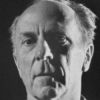Edward Weston

Edward Weston
Edward Henry Westonwas a 20th-century American photographer. He has been called "one of the most innovative and influential American photographers…" and "one of the masters of 20th century photography." Over the course of his 40-year career Weston photographed an increasingly expansive set of subjects, including landscapes, still lifes, nudes, portraits, genre scenes and even whimsical parodies. It is said that he developed a "quintessentially American, and specially Californian, approach to modern photography" because of his focus on the people and...
NationalityAmerican
ProfessionPhotographer
Date of Birth24 March 1888
CityHighland Park, IL
CountryUnited States of America
Photography suits the temper of this age - of active bodies and minds. It is a perfect medium for one whose mind is teeming with ideas, imagery, for a prolific worker who would be slowed down by painting or sculpting, for one who sees quickly and acts decisively, accurately.
My true program is summed up in one word: life. I expect to photograph anything suggested by that word which appeals to me.
When a photographer masters the tools and processes of the art, then the quality of the work is only limited by his creative vision.
Photography, not soft gutless painting, is best equipped to bore into the spirit of today.
It's hard not to tell the truth with a camera. Artists are particularly good at that.
No photographer is better than the simplest of cameras
I always work better when I do not reason, when no question of right or wrong enter in,-when my pulse quickens to the form before me without hesitation nor calculation.
To see the Thing itself is essential: the quintessence revealed direct without the fog of impressionism... This then: to photograph a rock, have it look like a rock, but be more than a rock. Significant presentation - not interpretation.
A photograph has no value unless it looks exactly like a photograph and nothing else.
Art is based on order. The world is full of 'sloppy Bohemians' and their work betrays them.
My work is never intellectual. I never make a negative unless emotionally moved by my subject.
A lifetime can well be spent correcting and improving one's own faults without bothering about others.
My own eyes are no more than scouts on a preliminary search, for the camera's eye may entirely change my idea, even switch me to different subject matter. So I start out with my mind as free from image as the silver film on which I am to record, and I hope as sensitive.
An excellent conception can be quite obscured by faulty technical execution or clarified by faultless technique.